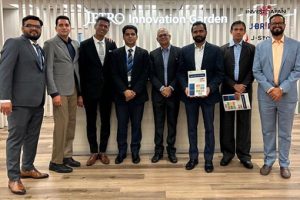The legal landscape in Singapore is on the brink of a transformative change as the courts contemplate harnessing the power of generative artificial intelligence (AI) to aid litigants in their claims or defense. Generative AI, capable of answering questions based on pre-loaded data, could potentially be a valuable resource for individuals navigating the legal system.
The initial phase of testing this innovative approach is set to take place in the small claims tribunal, a segment that typically handles around 10,000 cases annually. This experimental use of generative AI aims to support self-represented litigants in the pursuit of justice. Since there are no legal representatives in the small claims tribunal, it has been identified as an ideal environment for piloting this technology.
Justice Aedit Abdullah, the judge in charge of transformation and innovation, provided insights into this groundbreaking initiative during a press briefing. He highlighted that the Singapore courts recently inked a memorandum of understanding with American start-up Harvey AI, outlining their intent to utilize generative AI technology for a period of two years. This partnership was forged following Chief Justice Sundaresh Menon’s visit to New York earlier this year, where he engaged with the founder and CEO of Harvey AI, a company whose product is based on OpenAI’s GPT model.
Several law firms across the globe have already begun exploring AI’s potential in assisting legal professionals with tasks such as preliminary research and document summarization.
Justice Abdullah expounded on how generative AI could be a boon for litigants. For instance, consider an individual seeking compensation for a faulty washing machine purchase. Through AI, they could inquire about their rights, the next steps to follow, any associated deadlines, potential compensation amounts, and legal costs. Ideally, the AI system would provide guidance on how to proceed with the claim, directing litigants to pertinent websites and forms.
Furthermore, the AI could prompt litigants to gather necessary materials, such as receipts, and even explore potential settlement options. This AI tool would have been trained on specific information pertaining to Singaporean law, historical cases, and court procedures, according to Mr. Tan Ken Hwee, the judiciary’s chief transformation and innovation officer.
This development is part of Singapore’s broader push to innovate its legal processes. For instance, since August 2022, litigants have been able to use SG-Notify via Singpass to send push notifications to individuals they need to serve papers on but cannot locate physically. This digital approach is an alternative to traditional methods like newspaper advertisements or posted notices on a respondent’s front door.
Additionally, the courts introduced a document signing service in November 2020, allowing most legal documents to be signed digitally. Probate cases, particularly non-complex ones, have been streamlined, with the quickest case resolution clocking in at approximately seven days and 18 hours.
In terms of generative AI, experimental platforms have already been set up where individuals can seek guidance on neighbor disputes, criminal cases, wills, and more through chatbot interactions. This demonstrates Singapore’s proactive stance in leveraging AI to enhance the accessibility and efficiency of its legal system.






















